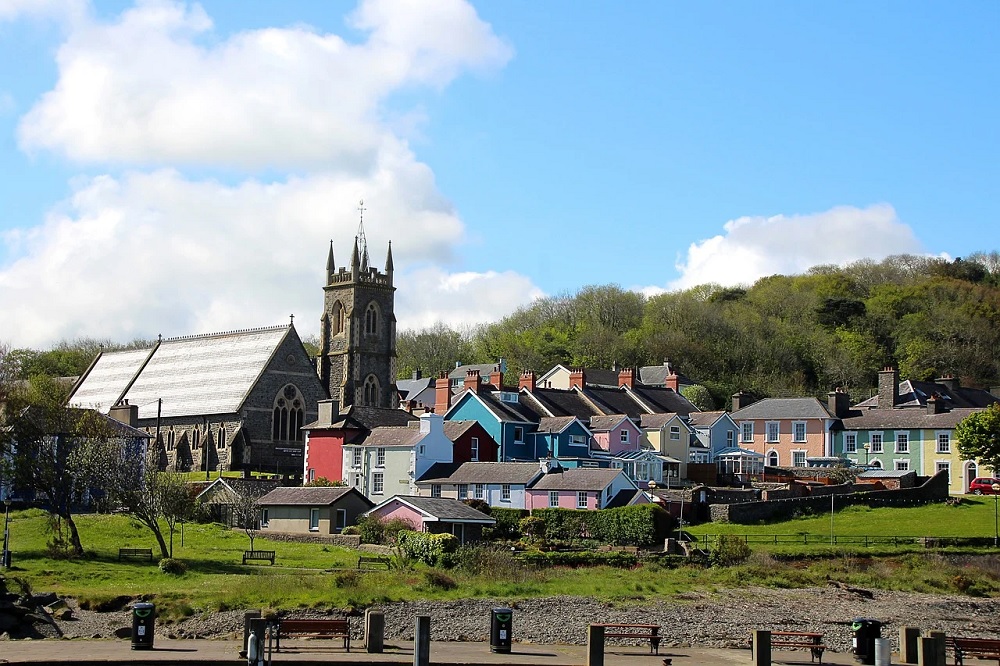Four times as many houses sold as second homes in Wales compared with UK average over last 12 months

More than four times as many houses sold in Wales were sold as second homes over the last 12 months as the UK average, new figures have revealed.
In Wales, 7.3% of houses were sold as second homes, compared with only 1.7% across the UK.
The percentage in Wales was also almost twice as high as the south west of England – another holiday home hotspot – where 4.4% of houses were sold as second homes.
The new figures by estate agents Hamptons suggest that the percentage of homes sold as second homes in Wales is far higher than elsewhere in the UK.
Separate research published by Hamptons in February suggested that the housing crisis was even more acute in some counties of Wales such as Anglesey and Gwynedd, where 31% and 27% of houses were sold as second homes.
It comes as the UK Government announced in the Queen’s Speech plans to grant local authorities the power to double council tax on second homes that are not let out.
The Welsh Government announced an increase to the maximum level of council tax premiums for second homes, as well as new local tax rules for holiday lets, last month.
The measures are part of a wider commitment to address the issue of second homes and unaffordable housing facing many communities in Wales, as set out in the Co-operation Agreement between the Welsh Government and Plaid Cymru.
As part of the changes, the maximum level at which local authorities can set council tax premiums on second homes and long-term empty properties will be increased to 300%, which will be effective from April 2023.
They are also looking at possible changes to land transaction tax (LTT) to allow local authorities to set a higher, additional rate in areas where they think there are too many second homes.
Support our Nation today
For the price of a cup of coffee a month you can help us create an independent, not-for-profit, national news service for the people of Wales, by the people of Wales.






They would make pretty good squats for those priced out of the housing market. I believe that despite the Tories, squatters rights are quite sophisticated in the toxic Union.
The umbrella term ‘second homes’ creates the perception that all second homes are bought by people for personal holiday use and/or holiday lets. Subsequently, all second homes are seen as a drain on local community life. However, people also buy second homes to be closer to work. They live there during the week and return to their family at the weekend. Second home owners who live, work and contribute to the community are vilified for owning a second home. To limit the freedom of movement of workers is a dangerous road to go down. Organisations need to recruit the most… Read more »
I wonder how many of them are second homes for work though. How far away would you need to live from a place of work to make a commute impractical I wonder?
What a shock….NOT! I was told by an Estate Agent about a man from the Cotswolds who recently bought 3 houses in Mumbles for “holiday purposes” for his family and friends. It is tidal wave, and Welsh Government couldn’t care less.
Action has been very slow to say the least.
Put a stop to this please, politicians.
Little wonder that Plaid Cymru triumphed in Y Fro. Local people have had enough.
Just a thought, but are there any statistics published that give us a ‘counted’ view of the housing market in Wales. Do we know how many people (Welsh Residents) are looking for rented accommodation, how many want to buy houses of particular sizes and then a similar set of figures for the availability of houses to let, houses to purchase and so on? Whilst there is a shortage of council housing as a result of Thatcher’s privatisation by stealth programme, do we know if the Market has stepped forward to fill the gap? I feel that we should be rational… Read more »
You raise a very good point. As far as I am aware, most or all Local Authorities and other agencies are collecting data on the number of houses bought within a 12 month period, the number of houses sold to those outside vs those already registered in the county, average house price increases in the area, and the number of people on the housing register.
I know for example that in Pembrokeshire, around 3,000 people are on the housing register awaiting social housing and around the same amount of properties are registered as second homes in the county.